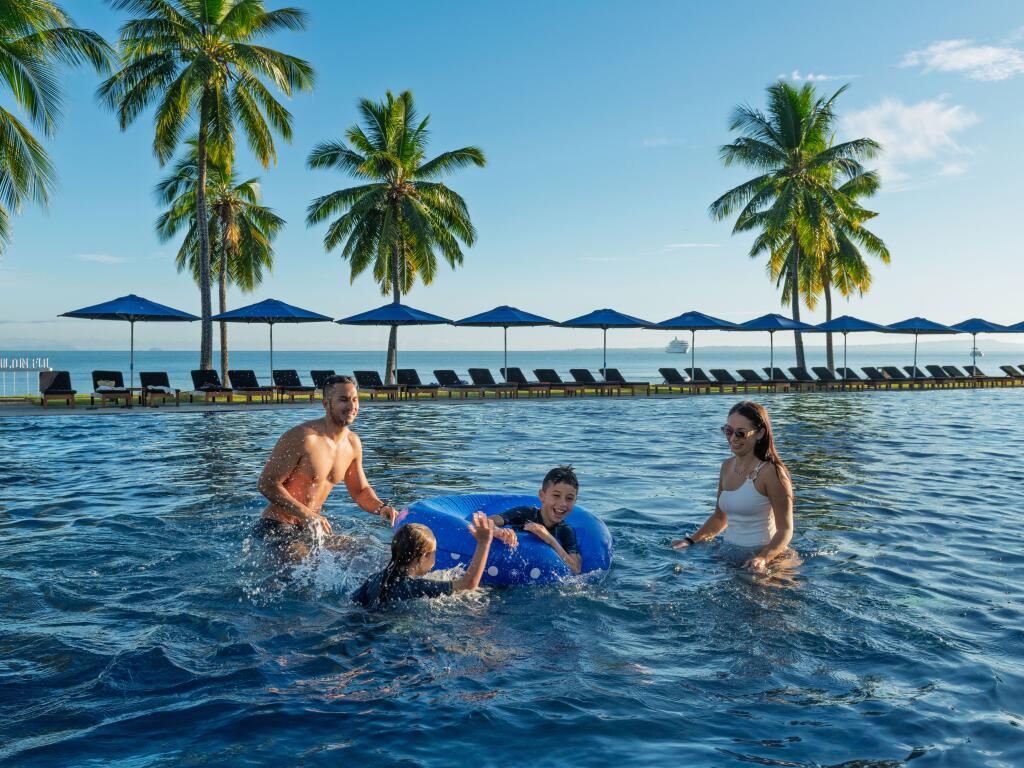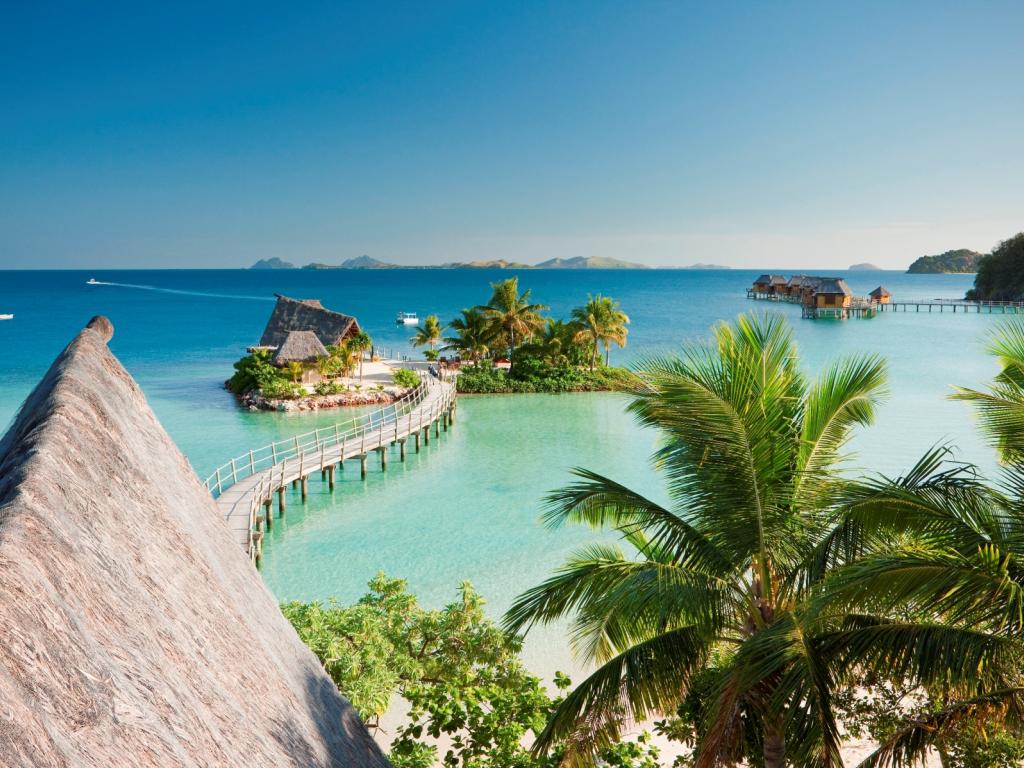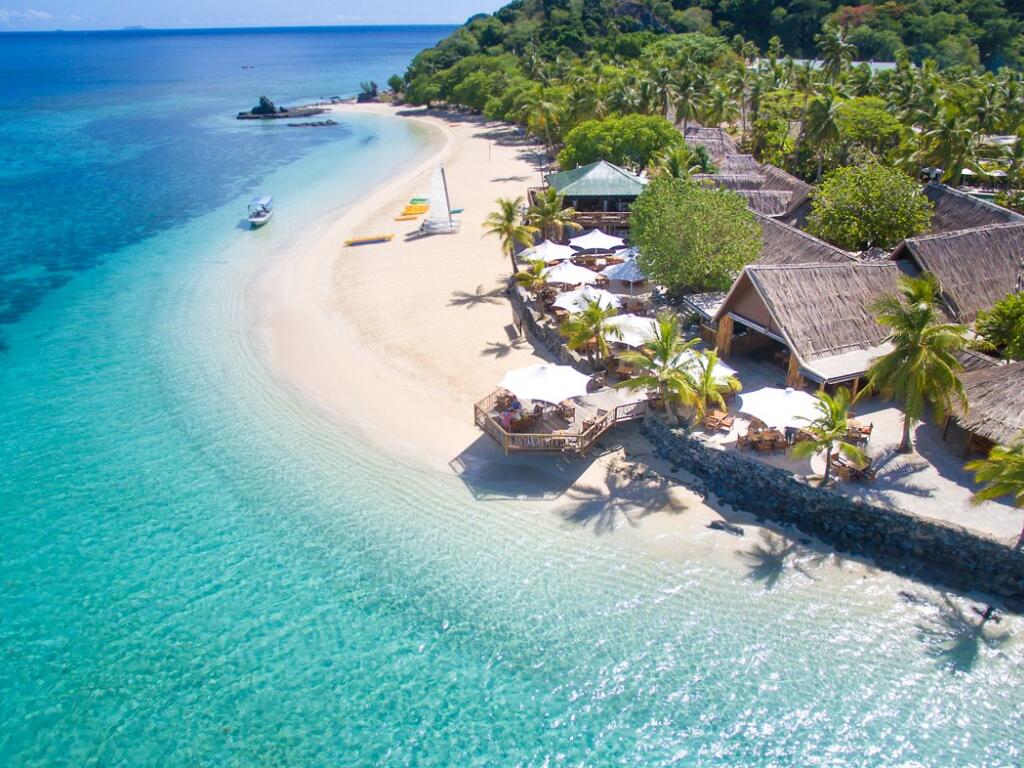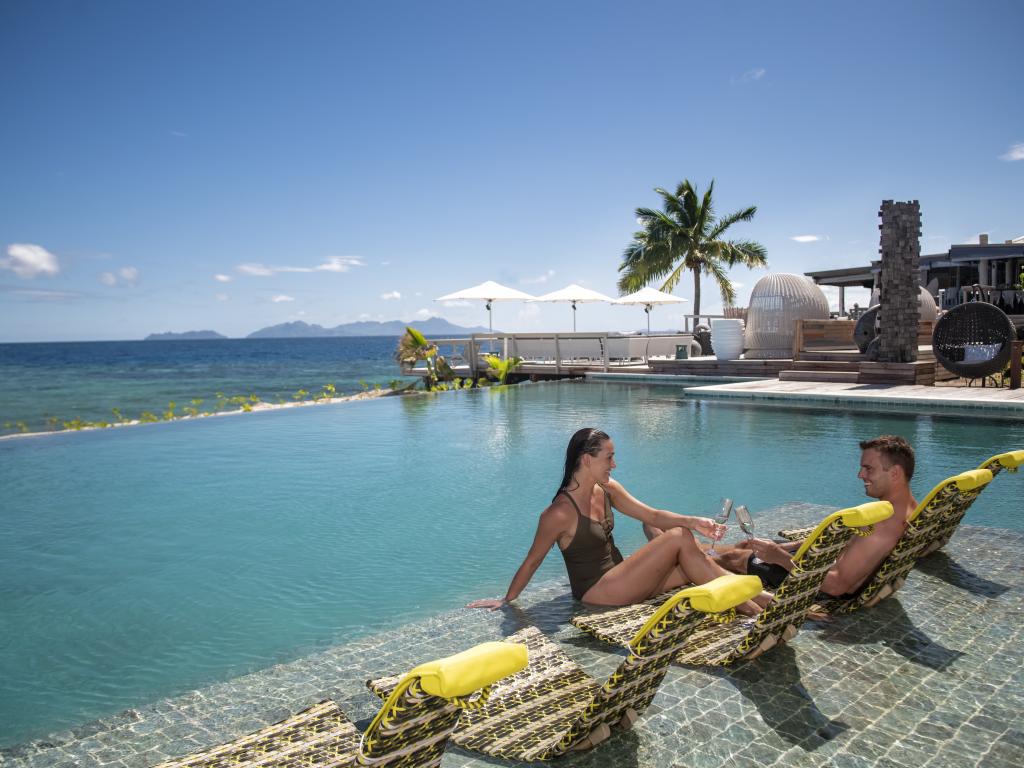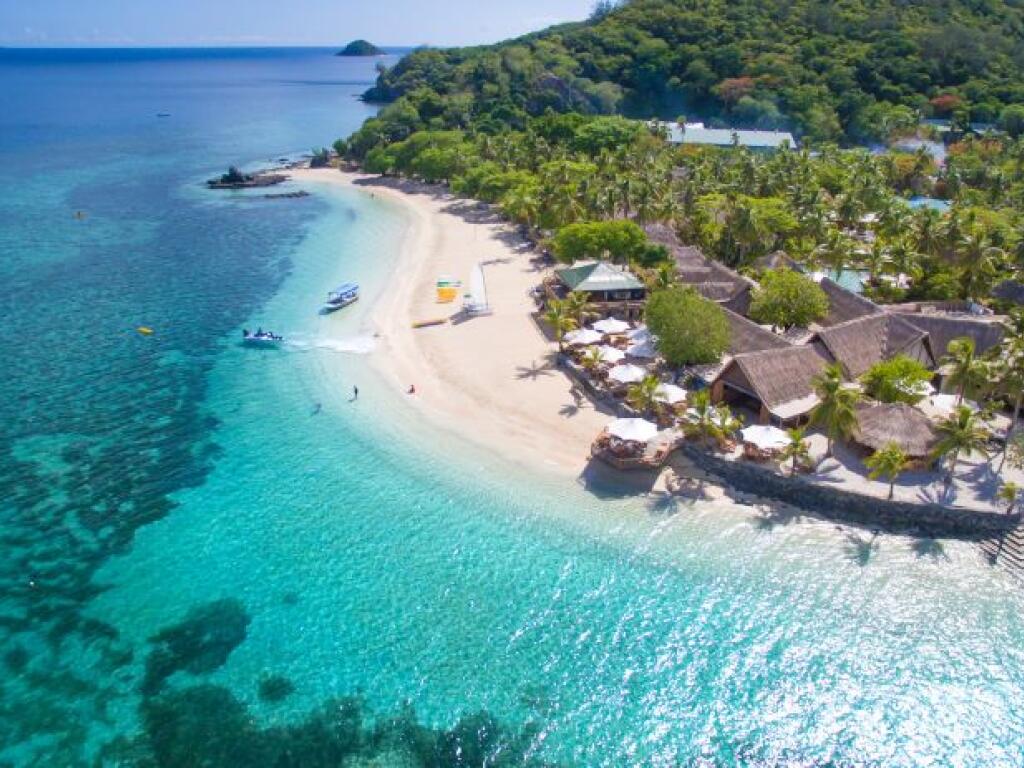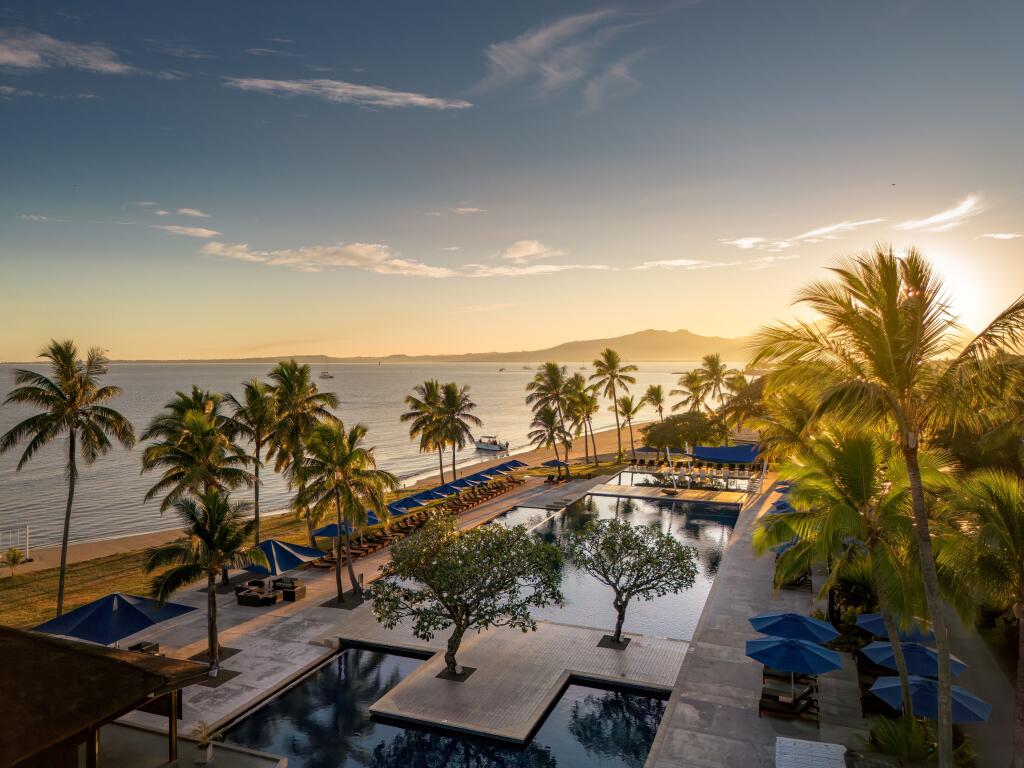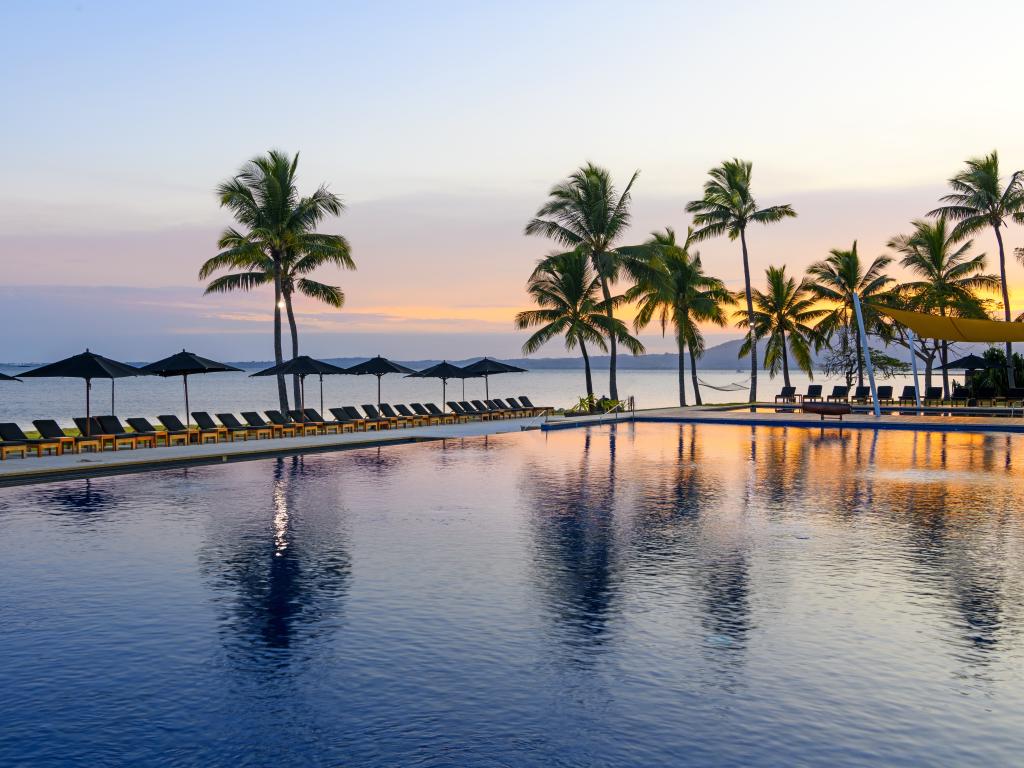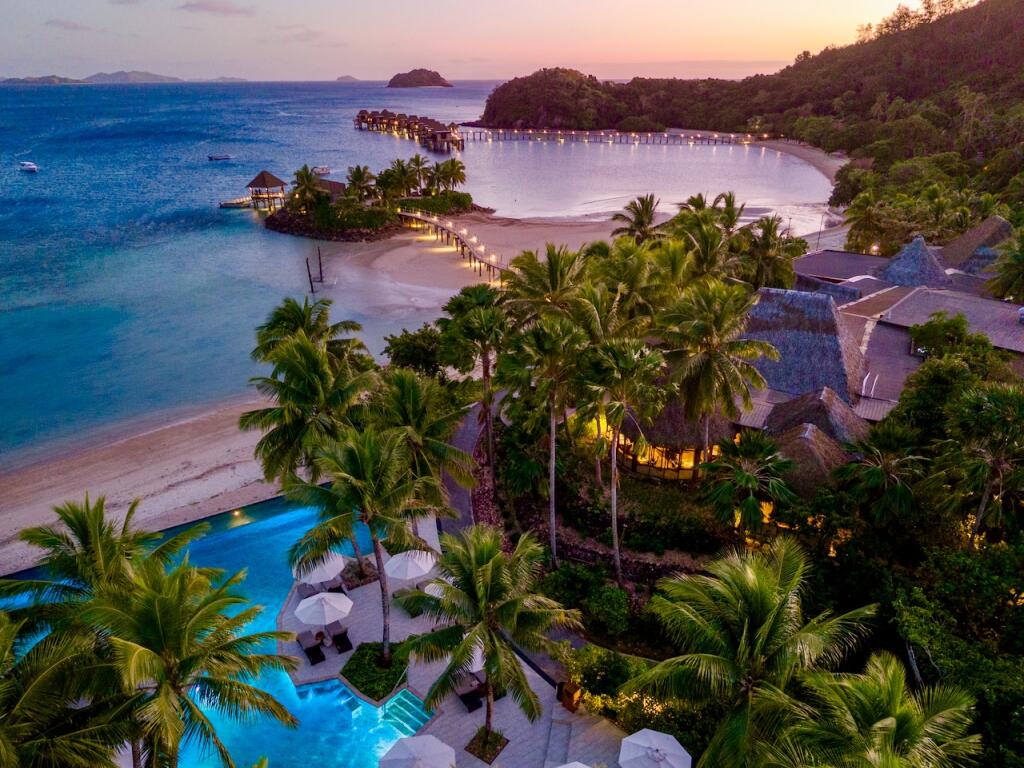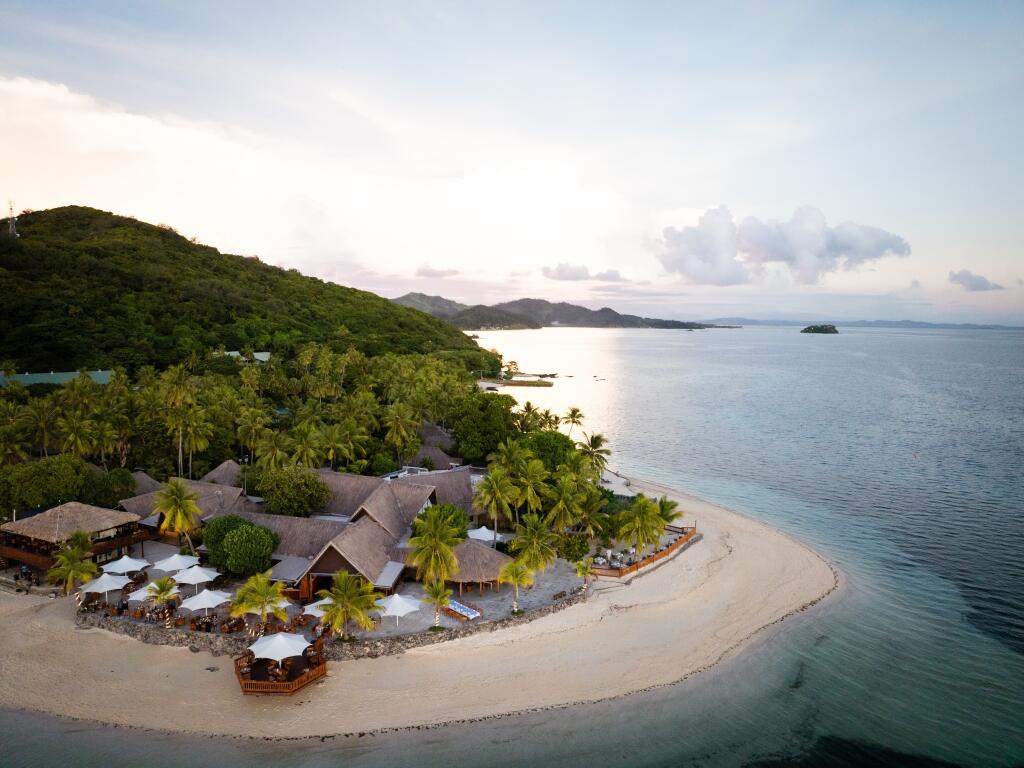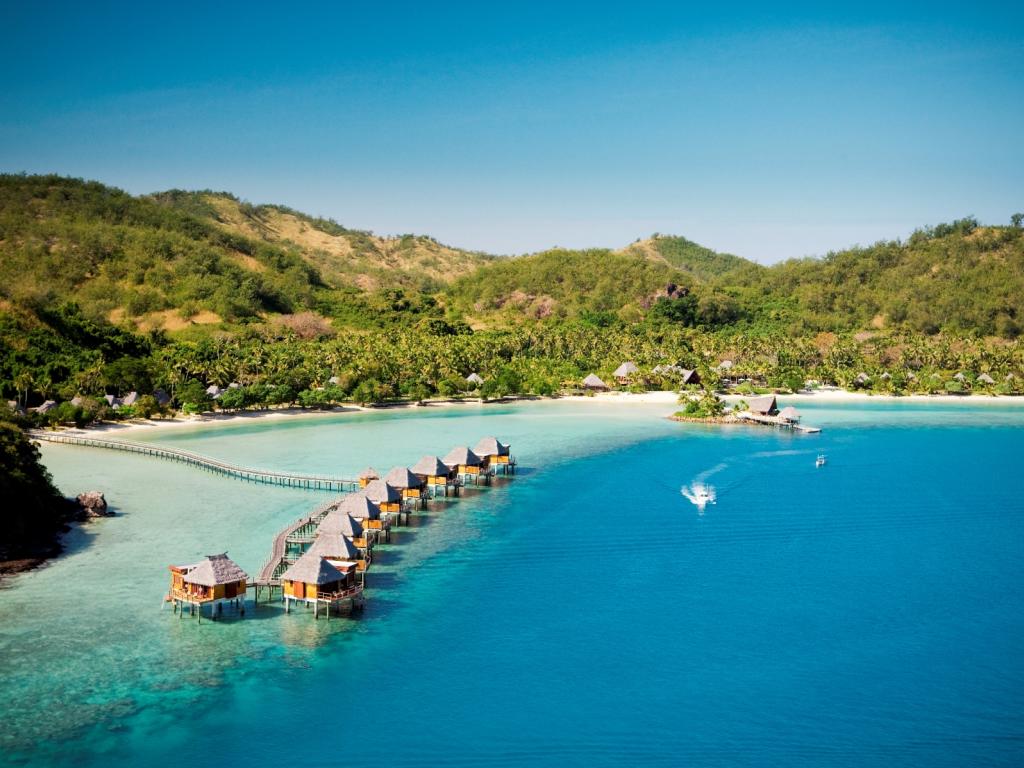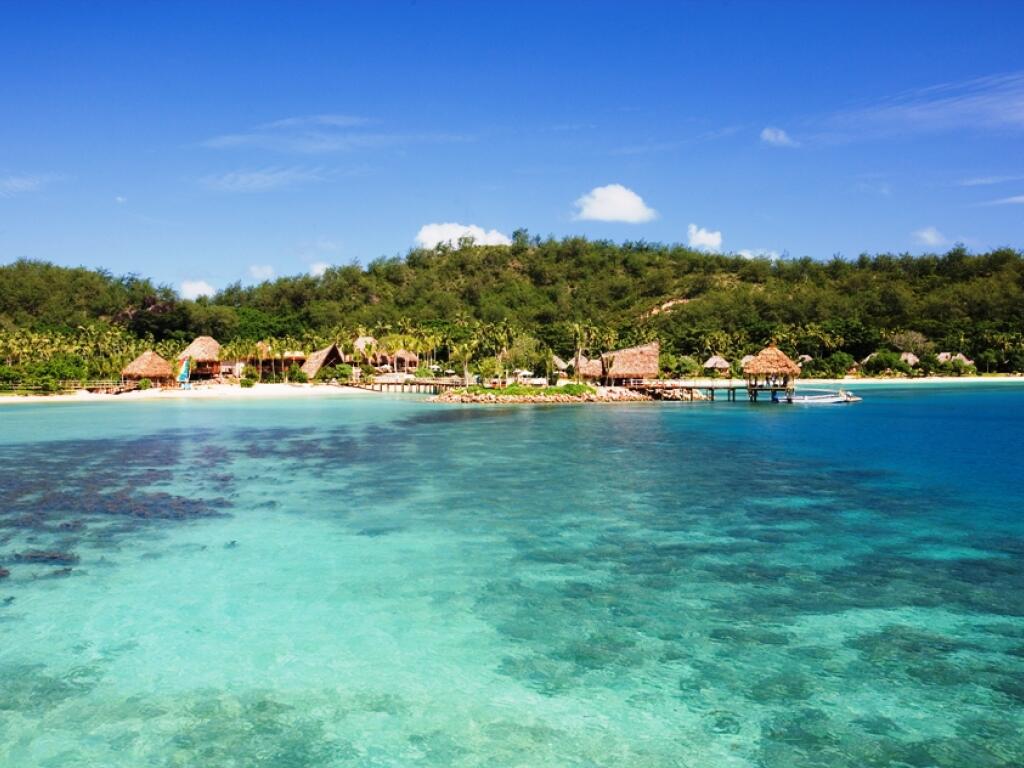Fiji History
Unlike its neighbour across the way, Fiji has only been inhabited for around 3500 years. First settled by the Melanesian people, a diverse range of food and agricultural practices were brought with them when they journeyed to the South Pacific archipelago. With them they introduced the pig and distinct Lapita pottery.
For the most part, Fiji’s first settlers established hierarchical communities based on descent and personal merit. Living in geographical and familial clans, they developed a network of alliances and adversaries. Large numbers of the population lived in the southeast of Viti Levu where the land was most fertile. Studies reveal that these communities applied sophisticated irrigation systems and large ring-ditch fortifications to protect and grow their settlements.
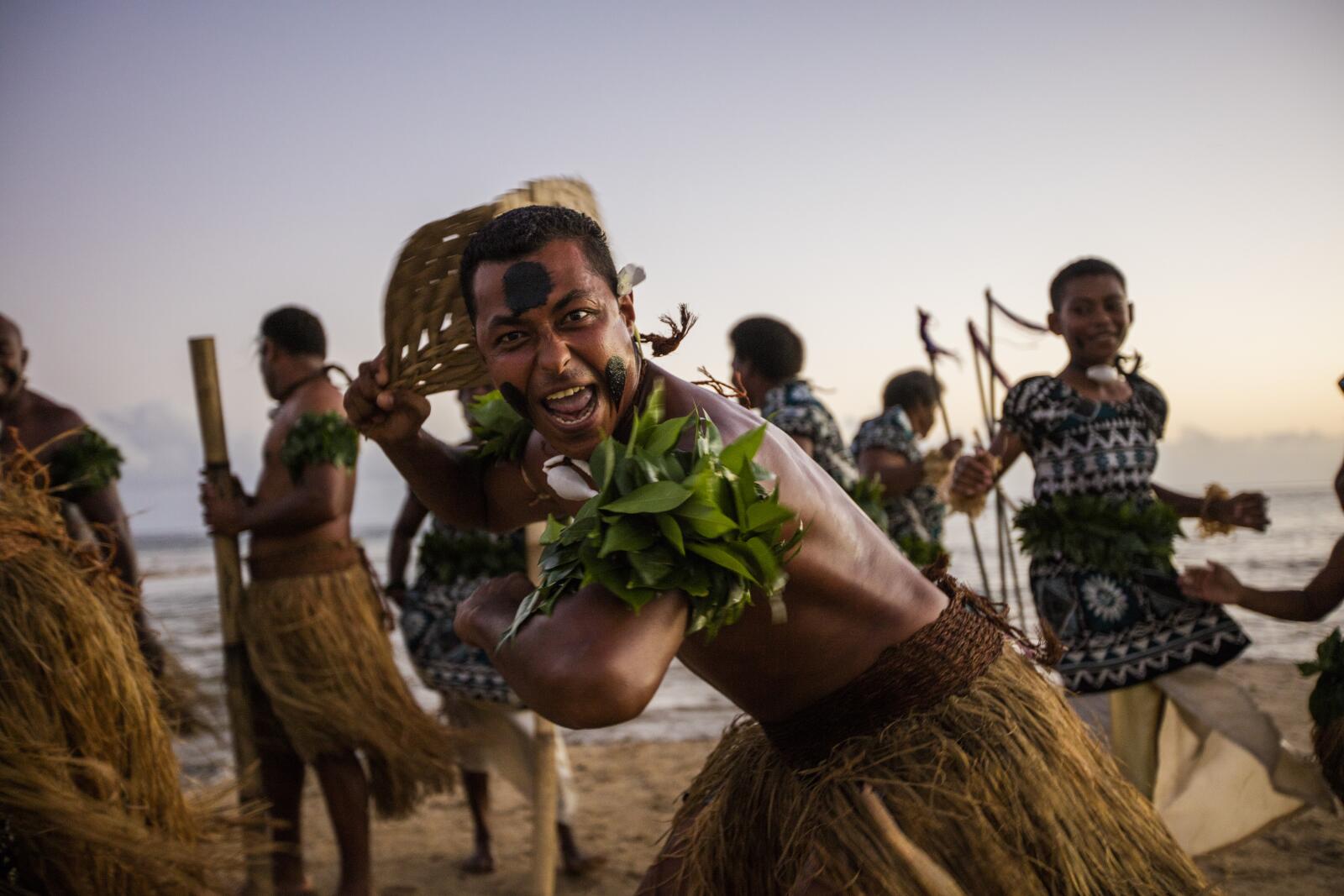
While the first Europeans to encounter the Fiji islands passed by in 1643 (sighted by Dutch explorer Abel Janzoon Tasman), it wasn't until 1792 that English Captain William Blough set foot in the region. Soon European states saw commercial interest in the islands, attracted by the abundant sandalwood and edible sea cucumber. In the 1860s European settlers sought control over the region, specifically interested in the fertile space that was primed for cotton plantations. This led to almost a decade of violent disputes between foreign governments and the Fijian communities until 1874 when Fiji yielded power to the British and became a crown colony.
Fiji's first governor Sir Arthur Gordon was influential in writing Fiji's modern story. Prohibiting the sale of Fijian land, he also limited their involvement in commercial and political concerns, taxed them through their farming produce and governed indirectly and with respect to the traditional community structures.
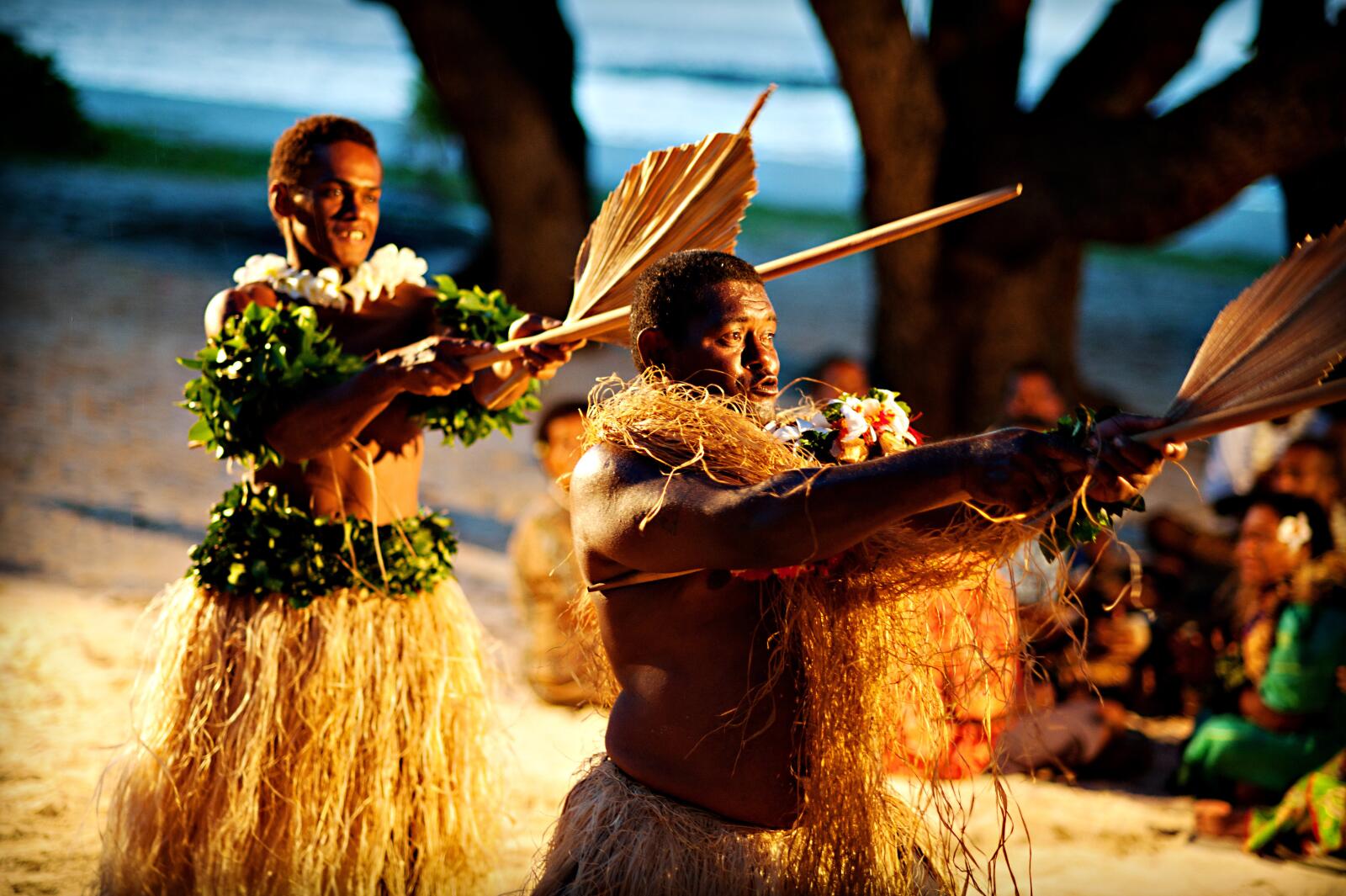
In 1966 a new constitution was introduced, protecting Fijian land rights, giving Fijian chiefs a veto in political matters that affected the status of Fijians and introducing an electoral system in which voters were classified according to their ethnicity (whether they be Fijian, Indian or General – of non-Fijian or Indian heritage).
From this point on, Fiji has undergone extensive changes; including enduring a number of coup d'états, Commonwealth expulsion, the adoption of two new constitutions and the readmittance to the Commonwealth against the wish of many Fijians and Indo-Fijians.

